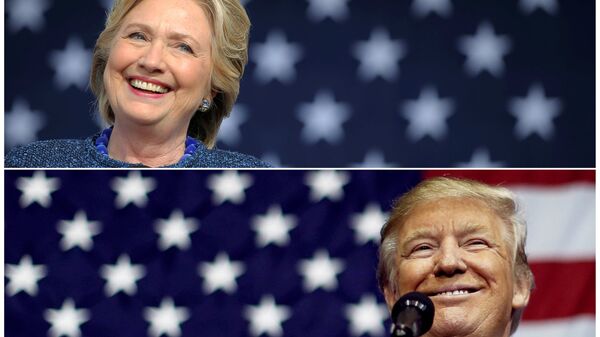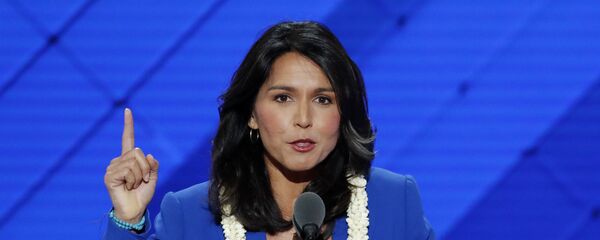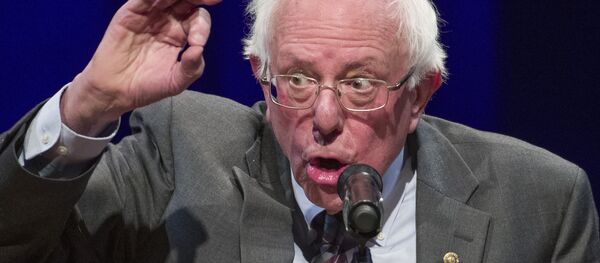"I'm told by three people that as recently as this week, [Clinton] was telling people that look, given all this news from the indictments, particularly the Roger Stone indictment, she talked to several people, saying 'look, I'm not closing the doors to this," CNN contributor Jeff Zeleny said, speaking on CNN's Inside Politics on Sunday.
In fact, the Washington, DC rumour mill has been swirling around Clinton since last October, after the 71-year-old former Democratic candidate said that she'd "like to be president," and wouldn't give a definitive answer on whether or not she would run for a third time.
Others, including former senior Clinton adviser Philippe Reines, have shot down the rumours, saying that Clinton was "more likely to win Powerball," adding that "it would be pretty dam clear" by now if she was running. Terry McAuliffe, former co-chair of President Bill Clinton's 1996 re-election campaign, similarly suggested that he was "confident" that Hillary was "done running for elected office."
But that hasn't stopped some diehard Hillary pundits from backing her.
Late last year, Former Clinton advisor Mark Penn and Democratic ex-New York city council president Andrew Stein penned an explosive op-ed for the Wall Street Journal entitled "Hillary Clinton Will Run Again," confidently predicting that by "reinventing herself as a liberal firebrand," this "Hillary Clinton 4.0," as they call her, "will easily capture the 2020 nomination."
The article goes through Clinton's career of constant reinvention, from a conservative Democrat as the junior senator from New York, to a moderate and hawkish "Hillary Clinton 2.0," who proved no match for Barack Obama, to a "Hillary 3.0," reimagined as a progressive, and finally, a "strong, partisan, Left-leaning and all-Democrat" 4.0 iteration "mobilising the army of professional women behind her and leveraging her social networks."
The WSJ promoted the article for weeks after publication, and sparked a flurry of debate among Democrats and Republicans alike. Penn and Stein insisted that a Clinton win in 2020 was totally feasible, recalling that Richard Nixon lost to John F. Kennedy in 1960 only to come back and win in 1968.
Clinton's possible reemergence is not entirely without merit, given the sting of winning the popular vote only to lose the general election in 2016, the recent Democratic successes in the midterms, the rise in women's political activism in her party, and possible support from billionaire globalists like George Soros.
Furthermore, as Wall Street analyst Charles Ortel said in a recent interview with Sputnik, running again would afford the Clinton family "the possibility of defending against attacks that should come concerning illegal organisation and operation of many 'charities', 'pay-for-play' corruption, obstruction of justice, and other felony crimes, by asserting these potential allegations are 'political retribution'."
On the Democratic side, over half a dozen candidates, including progressive Democrats Tulsi Gabbard and Elizabeth Warren, Kamala Harris, Kirsten Gillibrand, John Delaney, Julian Castro and Pete Buttigieg, have either announced a run or formed exploratory committees.
Penn and Stein admitted that "the generation of Democrats who have been waiting to take over the party from the Clintons will be fuming that she is back and stealing their show," but argued that the party "revealed themselves to be bungling amateurs in the Brett Kavanaugh nomination fight." Clinton, they predicted, "will trounce them. Just as Mr. Trump cleared the field, Mrs. Clinton will take down rising Democratic stars like bowling pins."
In a response to the Penn and Stein piece, Washington Examiner contributor Philip Klein suggested that there were over half a dozen good reasons why Clinton can't win the nomination of her party, much less win the election. Among them, he wrote, were her crippling unpopularity, which is even worse now than before the 2016 election, poor polling despite her universal name recognition, the fact that she is no longer the only female candidate, her poor chances among minority in a Democratic field stacked with minorities, "the Bill factor," referring to numerous accusations of sexual crimes by the former president, and finally, "Clinton fatigue."
Finally, New York Magazine contributor Ed Kilgore, who issued a convincing post-mortem of Clinton's loss in 2016, summed up his scepticism to the idea of another Clinton run saying the concept was just "blindingly stupid." According to the journalist, speculation surrounding a 2020 Clinton run "exists entirely within the fantasy world of Republicans whose idea of heaven is to perpetually chant 'Lock Her Up!' while reliving a whole generation of Clinton hatred."





